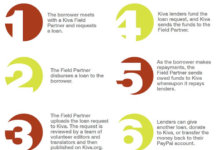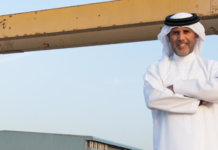In Malaysia, family-owned and government-owned companies are the most frequent ownership models, making up 67.2 % and 13.4 % of the total business community respectively. Additionally, 85 % of Malaysia’s publicly listed companies are run by owner-managers. Because of these companies’ impact on and visibility in the nation’s economy, demands with respect to ethical management and CSR are high. Family companies are particularly expected to maintain a healthy society and environment in Malaysia. Dr. Norhayah Zulkifli and Dr. Dalilawati Zainal, Faculty of Business and Accountancy, University of Malaya, describe three family business CSR strategy approaches and how they have led to success.
The European Commission and the World Business Council for Sustainable Development define companies with CSR as those deciding voluntarily to contribute to a better society and cleaner environment. This broad view of the CSR concept has been recognised by many around the world. As far as family businesses are concerned the prevailing assumption is that when compared to non-family businesses, the business ownership structure is naturally conducive to ethical and socially responsible behaviour due to families being deeply embedded in society and tending to have a vested interest in nurturing long term relationships as a result.
Companies in Malaysia have long implemented various CSR practices ranging from social to environmental activities. These initiatives include a range of benefits, training, and compensation, conformance to ethical and legal expectations, philanthropic and community involvement and social entrepreneurship, in addition to exuding family and/or religious values which take the shape of good deeds. It is clear that family business owners in Malaysia consider good relationships with employees, clients, and suppliers advantageous for their businesses. In this article, we explore the CSR initiatives and practices of AMMB, KLK, and IOICORP, the three top Malaysian family businesses based on their 2009 annual reports. The three cases clearly highlight the varying methods which family businesses apply to their CSR strategies.
Three family business CSR strategies
AMMB is a publicly listed company with majority family ownership which started its operations in 1976 by establishing subsidiaries of commercial and retail banking, capital market, life and general insurance, asset management, trustee/custodian/investment services and investment holding companies, among others.
According to its 2009 annual report, AMMB has structured its CSR strategy into quadrants: marketplace, community, workplace and environment. With respect to marketplace, the company offers a broad range of products and services such as the Family First Solution, which is an all-in-one financial strategy providing a complete set of products and services to fulfill all aspects of a family’s financial requirements. In accordance with Malaysia’s alternative Islamic financial market, AMMB suggests an Islamic stock brokering service for customers requiring Shariah compliance. The group keeps community close at hand in supporting Malaysian youth by developing talent and inspiring excellence in recreational activities through sponsored social clubs. Healthcare also attracts the attention of AMMB’s CSR endeavours as funding is provided to foundations promoting clinical and health services whilst the family business furthermore donates dialysis machines to hospitals. The group additionally contributes a portion of its RM150,000 zakat to the community by giving to a local orphanage.
[ms-protect-content id=”4069, 4129″]
With regards to the environment, AMMB started an initiative which focuses on increasing environmentally friendly practices by aiming to reduce paper waste by providing employees with notebooks to substitute paper-based work processes. The group also carries out poster campaigns which encourage saving electricity, reducing paper wastage through recycling, encouraging double-sided printing and moreover pushing for the use of electronic communication as opposed to internal correspondence which relies on paper.
IOI employs more than 30,000 people of more than 23 different nationalities across 15 countries. Its main activities centre around manufacturing, retailing and its properties and plantations. When it comes to CSR, IOI takes an integrative approach: the company believes that its social and environmental performance can help generate long-term value for shareholders and they consider corporate responsibility initiatives a key business objective. IOI focuses furthermore on its commitment to a sustainable value chain by integrating all of its CSR activities into the corporation’s business culture and the community at large. The company has implemented initiatives to reduce green house gas emission in order to diminish the company’s carbon footprint. IOI has undertaken a clean development mechanism (CDM) project to prevent their Palm Oil Mill Effluent from contributing to carbon emissions. In addition to the group’s initiatives aimed at the protection of the environment, a range of workplace training is in place. Exercises focused on advancing diversity, individual training and the promotion of employee welfare through medical health screening and awareness programmes are among the measures IOI employs. The company also provides scholarships as well as practical training and internships to enable college students to gain an insight into a key business environment.
IOI is a founding member of the Roundtable on Sustainable Palm Oil (RSPO) and is dedicated to the development and production of sustainable palm oil based on the standards devised by the RSPO Principals & Criteria erected to regulate its production.
The third family business in our grouping, KLK, is active in plantation manufacturing, investment holding, and palm oil related subsidiaries. For KLK, honouring its responsibility toward the environment whilst taking proper care of stakeholders has been an integral part of the company’s successful corporate strategy. Much like IOI, KLK emphasises that CSR be a part of their core business strategy and as a result aspires to make it a long term strategic objective. KLK’s CSR efforts focus on the company’s palm plantations, property development, and the processes related to oleo-chemical production. This is a part of the group’s core value structure, which includes the desire for accessible education, responsible care for the environment, providing a good living wage and fair treatment to all who are involved with the company. KLK advanced the educational opportunities of children active in its scholarship programme and over 22 learning centres across Malaysia are funded by the group.
KLK is also involved in a pilot programme focused on the elimination of the main source of Greenhouse gas (GHG) emission which occurs as a result of the milling of palm fruit. The group has undertaken a factory scale pilot test to eliminate the root cause of such GHG emissions. The test managed to reduce water consumption and also initiated a target-setting programme to reduce energy use per metric ton of production.
Comparing CSR
Each of the three family companies appears to focus on CSR initiatives which best relate to the nature of their business operations. Due to AMMB’s subsidiaries in commercial and retail banking, however, the company structures its CSR into four areas as proposed by the Kuala Lumpur Bursa CSR Framework; marketplace, community, workplace and the environment. On the other hand, IOI and KLK have their core business activities in palm oil plantations and therefore focus on their commitment to sustainable business operations and emphasising social and environmental considerations along their value chains. While it is broadly recognised that CSR and corporate sustainability acting as common business practice continues to be a relatively abstract tactic separate from the mainstream approach, IOI and KLK have appeared to take the opposite viewpoint by instilling CSR into their respective bottom lines. This may be explained by the fact that initiatives such as the RSPO, elimination of the main source of Greenhouse gas emission and the reduction of carbon footprint are too crucial to be disregarded by corporations as large.
The three family companies’ contribution to orphanages, education and a wide range of other charitable programmes each act as valiant philanthropic efforts. It is easy to draw a conclusion which associates the generous actions of giving by these family businesses to the customary conjecture that long-term relationships and entrenched community orientation naturally lead to ethical and socially responsible actions in the corporate sphere. CSR is not an alien concept and is exemplified well from both a Malaysian and Islamic vantage in each instance listed above. The manifestation of social responsibility in business and other global activities are considered ibadah and CSR as a result is conceptually subject to change on the basis of society’s greater good.
Tharawat Magazine, Issue 20, 2013
[/ms-protect-content]














